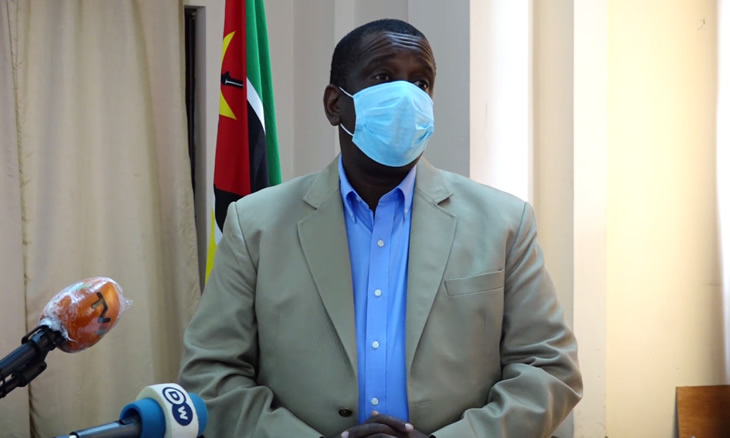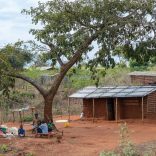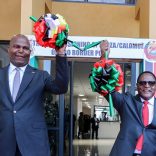Mozambique: Police uses tear gas to disperse Mondlane supporters in Maputo
Covid-19: Daviz Simango says State of Calamity is “viable alternative” – Watch

Photo: O País
The President of the Democratic Movement of Mozambique (MDM), Daviz Simango, yesterday highlighted “the need to move forward in assessing Mozambique’s current Constitutional framework regarding the State of Emergency and its legal requirements and specificities”.
Speaking at a press conference on Thursday, Daviz Simango said that the State of Calamity was currently “the viable alternative,” despite not having the same legal force to either limit individual freedoms or impose certain restrictions and obligations, as has the State of Emergency. declaration
“The legislador did not take into account the public health crisis we are up against today, when providing tor article 282 of the Constitution of the Republic,” he said.
“There is no clarity as to the possibility of resorting to a new [fourth] State of Emergency. . In these terms, the viable alternative is declaring a State of Calamity, which does not have the same legal force to wither limit individual liberties or impose restrictions and obligations,” Simango stressed.
The State of Emergency, which ceased to take effect at 11:59 p.m. on Wednesday 29 July, was first declared by President Filipe Nyusi in April in the context of preventing and combating the Covid-19 pandemic.
In an address to the nation at the end of the State of Emergency, Filipe Nyusi referred the direction that the country should take to a new address to the nation, after the Assembly of the Republic had discussed the 120 days of the State of Emergency, which would hopefully take place today (Friday, June 31).
For the next few days, the head of state called on Mozambicans to comply with the current package of measures, pending a decision on any new one.
In another development, the MDM leader said it was essential, taking into account the spread of the disease in the country, to improve compliance with preventative measures.
“Citizenship awareness, the use of masks, hygiene measures, social distancing, border controls, conducting tests and monitoring constantly, more rigorous measures related to awareness, in addition to extensive education of the population, the distribution of masks and public health education measures, as well as tax incentives for equipment and products related to the prevention of Covid-19,” would all be needed, Simango said.
Looking ahead, Simango said that there was a risk of overloading the health system if there were no effective control of new infections, a scenario which would also contribute to the neglect of other diseases, even highly lethal ones.
In its twice-weekly Covid-19 assessment, the Ministry of Health yesterday (Thursday) revealed that another 60 people had tested positive for the new coronavirus, bringing the cumulative total of positive cases to 1,808.
By Ilídio Bata












Leave a Reply
Be the First to Comment!
You must be logged in to post a comment.
You must be logged in to post a comment.